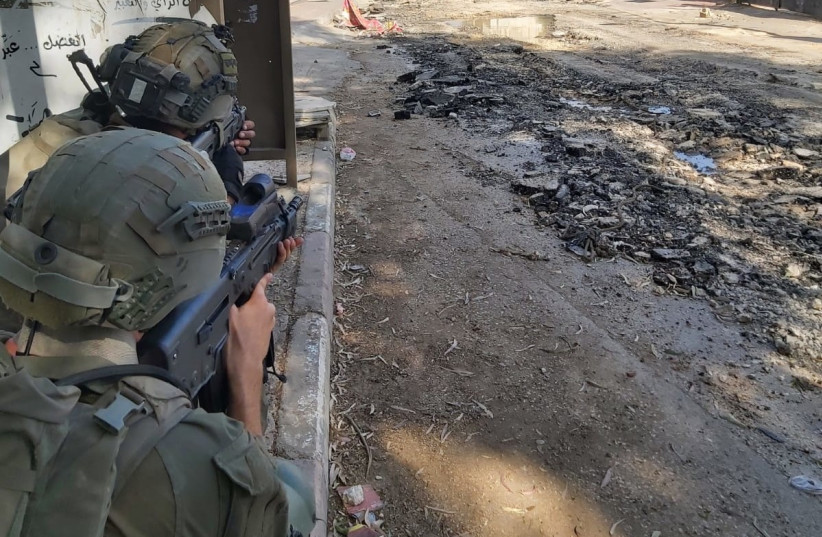In Vietnam, before being defeated, the US military famously tried to sugarcoat that it was losing by citing statistics about how many men it had killed in a given period of time.
Politics and morality aside, tactically, the US lost the war because there were, in relative terms, an unlimited number of Vietnamese men willing to die, and those who did were small compared with the population – even if far more Vietnamese died than Americans.
Israel has a parallel but different problem in Jenin.
The IDF's accomplishments in Jenin
The Jenin fighters are what matters, and Israel, so far, has mostly managed to destroy only infrastructure, with the IDF snagging hundreds or thousands of improvised explosives and weapons.
But improvised explosives are easy to replace – something that should be obvious when the IDF captured so many in one city alone.

For Israel to make any sustained dent in terrorism in Jenin, it needs to arrest or neutralize 300 suspected terrorists in a city of 49,000 – and then it may need to repeat that, again and again.
To date, 12 Palestinians were killed in battles with IDF forces, dozens were wounded, and 30 were sent for extensive interrogation by the Shin Bet (Israel Security Agency). Half or more of the fighters either fled or hid.
So when the IDF says it neutralized more than 1,000 improvised explosives and weapons, while only killing 12 Palestinians, this really is its backup headline to obfuscate that it launched a massive operation that left most of the fighters at large.
In other words, as Defense Minister Yoav Gallant put it, the IDF will need to return to Jenin if it wants to have a chance to reduce the terrorist apparatus.
Yet even if does that and arrests 300 operatives a day, more may emerge from the woodwork. They could be friends or relatives of those killed or arrested – or unrelated civilians who saw a YouTube video or had a variety of other negative experiences that convinced them to use violence against the IDF.
In that case, until a broader military or diplomatic solution emerges, the only chance Israel has for a longer break from problems in Jenin would be if the remaining suspected terrorists decide to stay “underground.” Having seen the IDF’s superior airpower and that Gaza Strip terrorists and Hezbollah did not really step up to fight with them in any serious way, some may throw in the towel.
Seeing the parts of Jenin where there are destroyed streets and the parts that are relatively undamaged, some may conclude that they would rather remain in an undamaged area in the future.
In the meantime, it is best to be careful about being impressed by large statistics of achievements against terrorism. If the suspected terrorists are not neutralized or arrested, and if they can be easily replaced, Israel will likely not get anything more than temporary quiet from Jenin.
